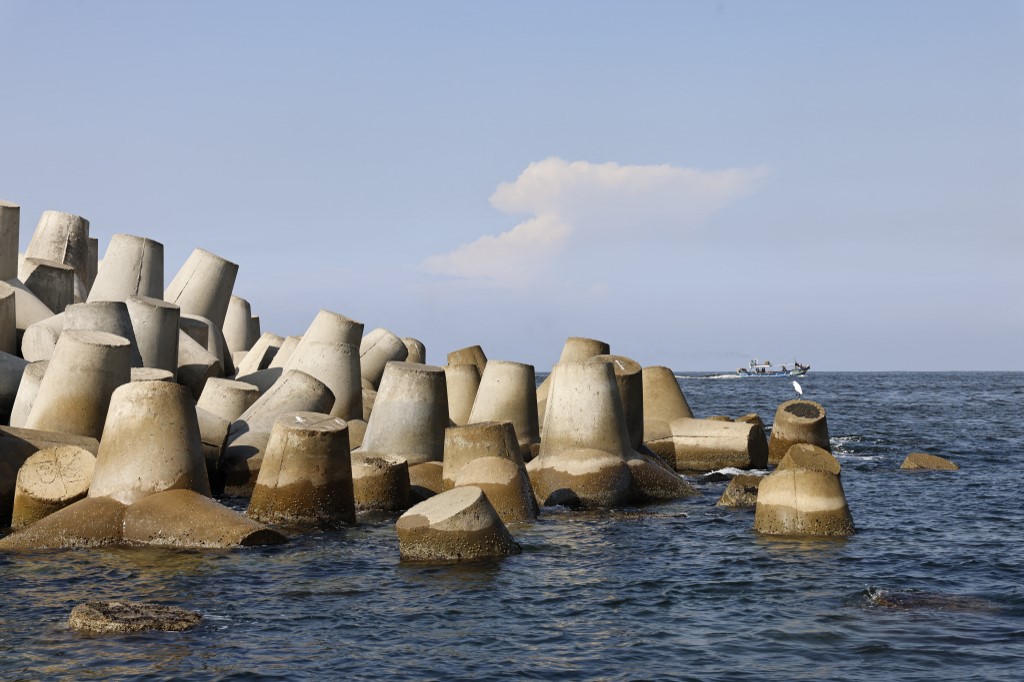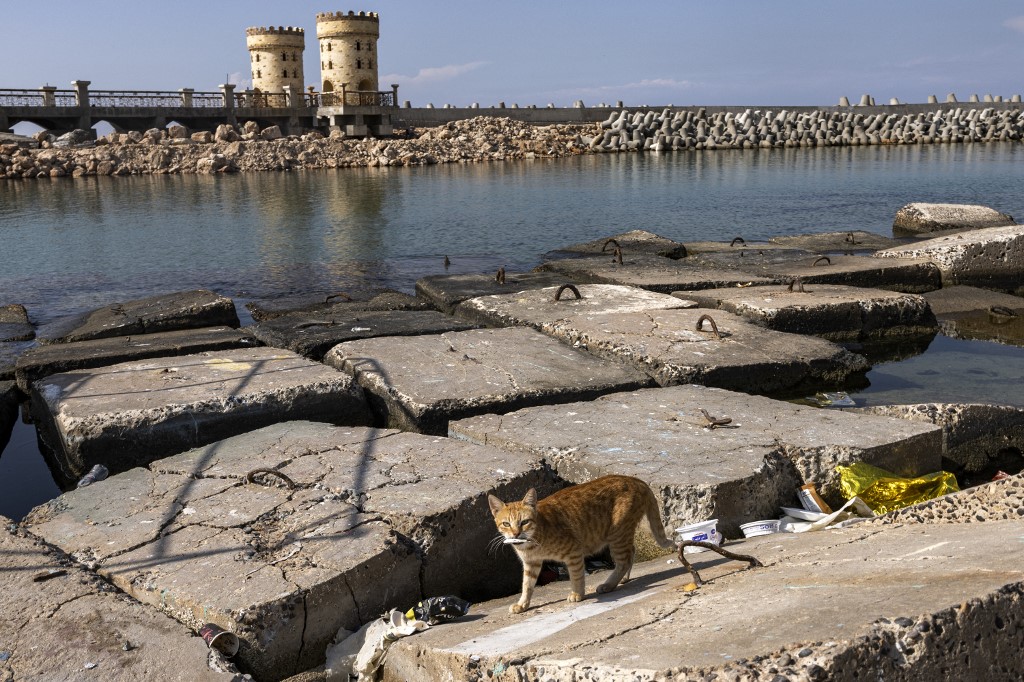
A boat sails past the concrete blocks installed to break the Mediterranean sea waves along the waterfront in Egypt's northern Mediterranean coastal city of Alexandria on October 31, 2022. (Photo: AFP)
Alexandria, Egypt's second city and its biggest port, is in danger of disappearing below the waves within decades.
With its land sinking, and the sea rising due to global warming, the metropolis Alexander the Great founded on the Nile Delta is teetering on the brink. Even by the United Nations' best-case scenario, a third of the city will be underwater or uninhabitable by 2050, with 1.5 million of its six million people forced to flee their homes.
That echoes a warning from Britain's then-prime minister Boris Johnson that Alexandria is at risk of being lost "beneath the waves" at the COP26 climate change conference in Glasgow last year.

A cat walks with a small fish in its mouth on the concrete blocks installed along the waterfront to break the Mediterranean sea waves off the harbour of Egypt's northern Mediterranean coastal city of Alexandria on October 31, 2022. (Photo: AFP)
Every year the Mediterranean coastal city sinks by more than three millimeters, undermined by dams on the Nile that hold back the river silt that once consolidated its soil, and by gas extraction offshore.
In order to avoid this disaster, Egypt has initiated several projects, such as building breakwaters and planting reed strips along the coastline. In addition, wave measurement systems and other methods will soon be put into use.
The world is warming because of emissions produced by humans, mostly from burning fossil fuels like oil, gas and coal.
Global temperatures have risen 1.1 C and are heading towards 1.5 C, according to the UN's climate scientists, the Intergovernmental Panel on Climate Change (IPCC).
Action is certainly needed.
This weekend, Egypt is hosting the latest UN climate summit COP27 for world leaders to discuss action to tackle climate change. This summit follows a year of climate-related disasters and broken temperature records and is reckoned to be the world's best hope of progress on the climate issue.
The global effort to cut emissions is "woefully inadequate" and means the world is on track for "catastrophe," the UN warned last week.
This will be the fifth time a COP has been hosted in Africa. The region's governments hope it will draw attention to the severe impacts of climate change on the continent. The IPCC says Africa is one of the most vulnerable regions in the world. Currently, 20 million people are estimated to be suffering food insecurity in east Africa because of drought.
(Compiled by Sun Shulang)


